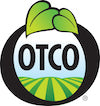Wild Honey Bee Populations Threatened By Commercial Beehives

With honey bee populations dwindling around the world, many urban beekeeping operations are sprouting up. While that may seem like a good thing, it might not be the best thing for native bee species.
According to BBC News, these commercial beehives may be introducing diseases to wild bee populations that don’t have the ability to fight off infections, adding to the threats bee populations are currently facing.
That’s the finding of a recent study, published in the Journal of Applied Ecology. "Our study highlights the importance of preventing the release of diseased commercial pollinators into the wild," lead researcher Dr Lena Wilfert told BBC News.
"The diseases carried by commercial species affect a wide range of wild pollinators but their spread can be avoided by improved monitoring and management practices.
"Commercial honey beekeepers have a responsibility to protect ecologically and economically important wild pollinator communities from disease."
The European Union recently banned several pesticides linked to declining honey bee populations. Researchers theorize that the neonic class of pesticides disorient bees making them prone to abandon their hives (or incapable of finding their way back to it), as well as weakening their immunity to parasites and viruses.
"Wild honey bees can no longer be found in England or Wales, thought to have been wiped out by disease," Vanessa Amaral-Rogers of the charity, Buglife told BBC News.
"Now these studies show how diseases can be transmitted between managed honey bees and commercial bumble bees, and could have potentially drastic impacts on the rest of our wild pollinators. "
UK researchers recently found as many as five different types of parasites in 77 percent of UK hives tested.
Bees are critical pollinators, responsible for a number of foods—about one-third of all the food we eat. Preserving bee populations has never been more important, which is why many commercial bee operations have cropped up in the first place. But a better approach at “saving the bees” might be in growing plants they like to eat and making sure to decrease your use of pesticides.
Leave a comment
Comments will be approved before showing up.


